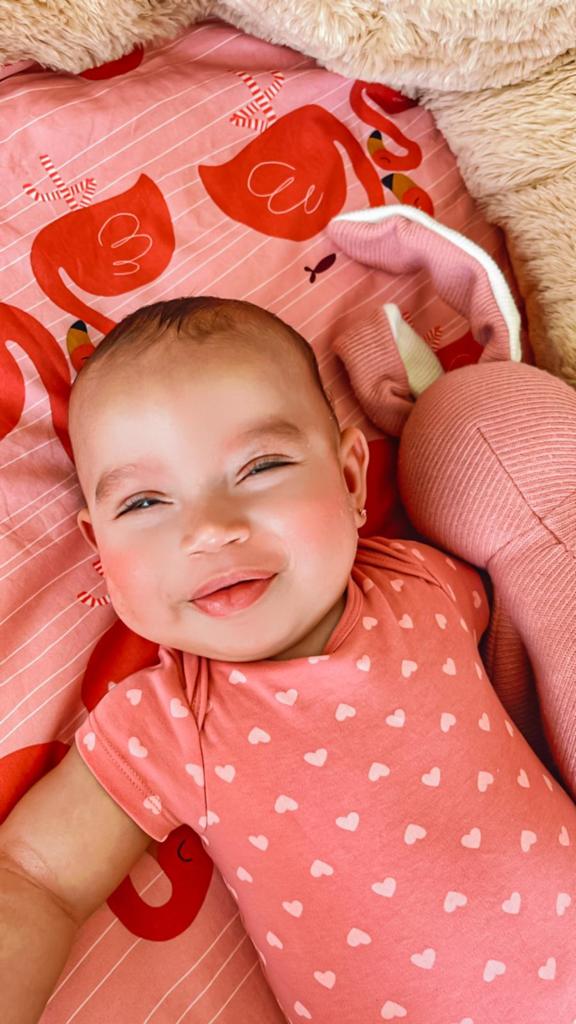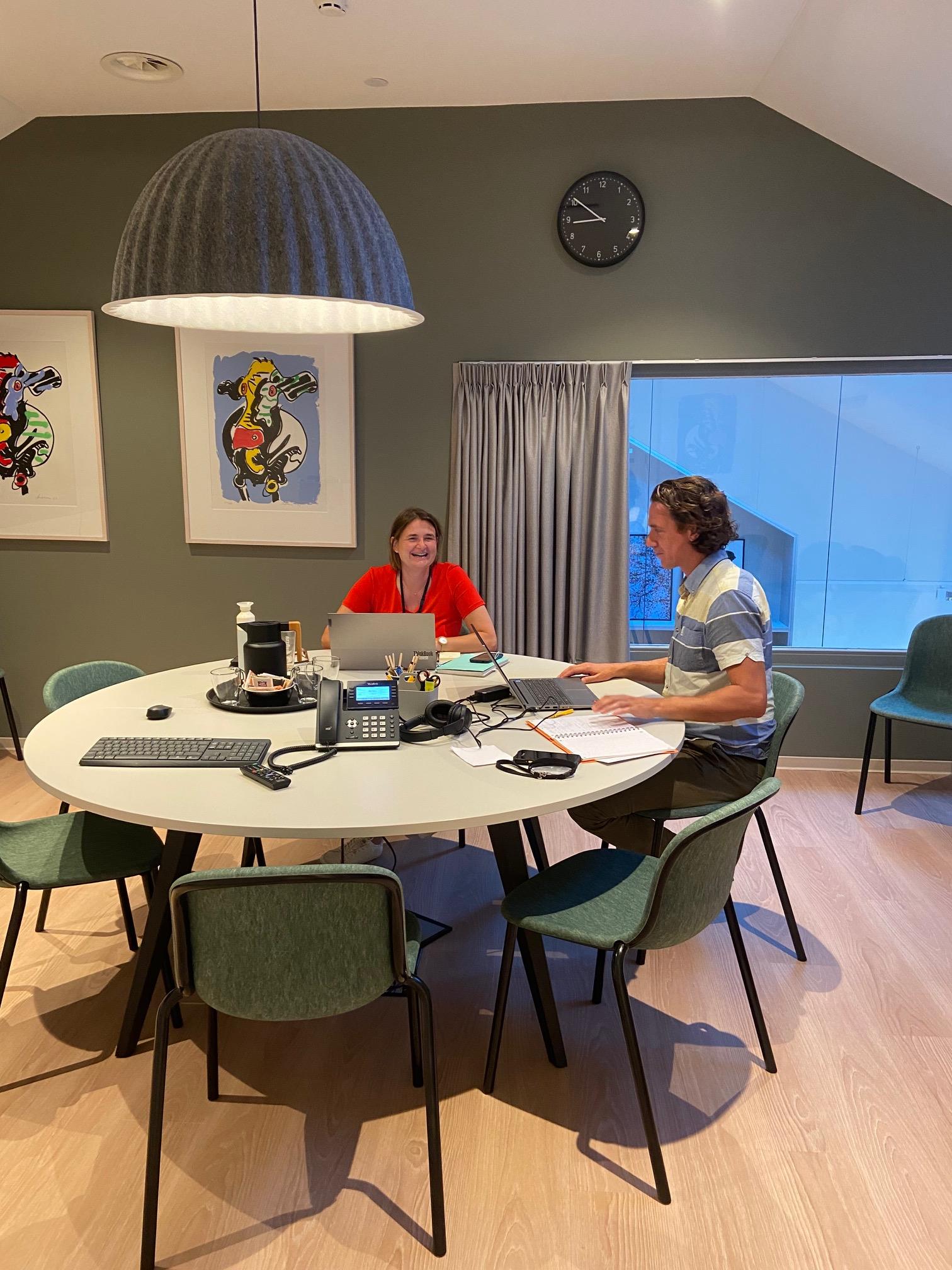'In the Netherlands, children who require intensive care sometimes spend months in the Intensive Care Unit (ICU). They could potentially go home with good home care and support, but because acute care takes precedence over intensive care and there are also no adequate facilities to teach parents how to care for their child, they often stay in bed for a long time. Children with high care needs who are on the regular children's ward can sometimes stay there for a long time because of a lack of time for parental education. We are filling this gap', says Arno Colenbrander, pediatrician at the Jeroen Pit House.
'We are committed to supporting the process from hospital to home as optimally and as much as possible for families who need it. Consider, for example, children who leave the ICU with a tracheostomy tube or a PEG tube, or a newborn baby with a congenital disorder that needs extra nursing care in addition to normal care. That care can be complicated. For example, if the cannula falls out, if the probe becomes inflamed, or if the monitor of a child receiving supplemental oxygen alarms. Then you as parents have to be able to act quickly. Our goal is to empower parents. We do this through the seven-phase model we developed, in which each phase stands for more independence for parents in caring for their child.
Open received
Don and Ruby also experienced this. Four months after a difficult labor and period, they came  with their daughter Cathaleya from the Emma Children's Hospital to the Jeroen Pit House. DNA testing had shown that she has Schaaf-Yang syndrome, a very rare genetic abnormality that can cause developmental delays. Don: 'This manifests itself differently with every child, so we can only see in the course of time what influence this has. Little is known about it.' The unfamiliarity caused a lot of uncertainty and loneliness among the parents. Ruby: 'We didn't know where we stood and had a lot of questions. Cathaleya went one step at a time, but was still on a ventilator. We wanted to reduce that, but the doctors did not see that happening fast enough. They told us that Cathaleya might get a tracheostomy tube. But because there was no room in the ICU at that time, the head suggested we go to the Jeroen Pit House to recover and see what care is needed for our daughter. There we were welcomed openly.'
with their daughter Cathaleya from the Emma Children's Hospital to the Jeroen Pit House. DNA testing had shown that she has Schaaf-Yang syndrome, a very rare genetic abnormality that can cause developmental delays. Don: 'This manifests itself differently with every child, so we can only see in the course of time what influence this has. Little is known about it.' The unfamiliarity caused a lot of uncertainty and loneliness among the parents. Ruby: 'We didn't know where we stood and had a lot of questions. Cathaleya went one step at a time, but was still on a ventilator. We wanted to reduce that, but the doctors did not see that happening fast enough. They told us that Cathaleya might get a tracheostomy tube. But because there was no room in the ICU at that time, the head suggested we go to the Jeroen Pit House to recover and see what care is needed for our daughter. There we were welcomed openly.'
Like home
The location felt like home for the young family. 'We had our own bedroom, living room, kitchen and a bedroom for Cathaleya. In the hospital we had been constantly surrounded by nurses, doctors, bells and whistles. For the first time, the three of us could sit on the couch and watch TV. Our privacy was respected.' Georgine Oele, team leader in the Jeroen Pit House, says that this is also offered for families who need social contact with other parents. 'There is a large garden with plenty of seating areas and a shared kitchen. If parents wish, they can cook and eat together. If you don't want that, you can also stay in your own apartment.'

Georgine Oele and Arno Colenbrander
Healing
The family was able to recover during the first week and the Jeroen Pit House took care of it. Arno Colenbrander: 'Recovering is important, because they had been through a lot in the hospital. . When you hear that your baby is seriously ill, while you think: we are starting a new life with hopefully a healthy baby, it is very intense. Here parents can be parents again and a child can be a child again.' It was the same for Ruby. “After the stay in the hospital, I could no longer see white coats. Whenever a doctor came in, it was to deliver bad news. They helped her and us well, but sometimes it felt like we had to fight for our child. In the Jeroen Pit House I came across white coats again. That was a challenge for me, especially since I was staying there permanently. Because they were so caring and really wanted to help us, Don and I have a different view of doctors and nurses. We were embraced. The trauma disappeared and with that the stay has been healing for me. In the hospital there is care for your child, in the Jeroen Pit House for your whole family.'
Learn to care
Gradually, Don and Ruby took over the care of their daughter. Ruby: 'I was very happy with the first things I was allowed to do. We learned a lot from them. They were patient, showed interest and thought along with us. That made me feel less lonely.' The Jeroen Pit House works with targeted learning goals that they set together with parents. Georgine Oele: 'It is precisely because of our coordinating role that we can be of great value to the parents. We ask parents what they want to learn. That process is also regularly evaluated, both with the parents and with the multidisciplinary care team.' For example, Don felt the need to be reassured that he can handle Cathaleya's care because he was afraid of panicking. Don: 'The Jeroen Pit House has given me confidence that I can take care of my daughter. They taught me what to look out for, including in an emergency, and how to anticipate on that.'
To practice
After a month and a half, Don and Ruby were confident enough to go home. Don: 'We thought, okay we can do this, we can be there for our daughter.' The doctor also thought this was justified. Ruby: 'It was a bittersweet moment. We wanted to go home, but we also had such a good time there. Yet at some point you have to let go.' To do this gradually, the Jeroen Pit House offers parents the opportunity to practice at home for an afternoon or night, with the Jeroen Pit House team as back-up. Don and Ruby have also practiced this way at home a few times. Once back, it will be discussed how it went. That went well. Georgine Oele: 'In addition to medical care, things can come to light at home on a social or practical level.' Arno Colenbrander: 'Sometimes it turns out that the house still needs adjustments. Either parents find out that they don't have a good overview yet, or they notice that the sick child puts enormous pressure on the relationship. Or brothers and sisters who have not had any attention for a long time, demand all the attention.'
At home
Don and Ruby have now been home with Cathaleya for about two months. That took some getting used to. Don: 'While most parents find a routine within a month, for us it only started after five months. We are only now really getting to know our daughter.' Cathaleya is doing well. You can't really see that she has an abnormality. Don: 'Certain developments may take longer. But the doctors are satisfied with what she is showing now.' The care for Cathaleya is also going well. Ruby: 'The Jeroen Pit House coached us well in this, including what to do in an emergency, such as recently when Cathaleya had a high fever. That didn't feel right, but still I remained calm and I was self-assured. When looking at all the signs I saw that she was short of breath and called the GP. The operator said, "You already know so many things and are so good at explaining what's going on." Because I didn't trust it, I drove to the post office. Then she turned out to have corona, just like Don.' If something is really wrong, parents can always come back to the Jeroen Pit House. Arno Colenbrander: 'Imagine that a child who has already been in the Jeroen Pit House gets a new infection at home and needs more monitoring, for example. Then that is possible here.'
To expand
Parents give back that the Jeroen Pit House provides sensible care. Georgine Oele: 'We want to demonstrate this scientifically. Also because we have agreed with insurers that this new intervention must be profitable. If we can demonstrate that it is sensible care, we want to expand soon. Our mission is that everyone in the Netherlands can make use of this new form of care.
A child can go to the Jeroen Pit House:
-
if there is complex care in which the parents are not yet able to provide the care themselves or with the help of home care, such as in the case of a metabolic disorder, cerebral palsy, cystic fibrosis, after the correction of a duodenal atresia or an upper airway obstruction;
-
if, due to circumstances at home or in the family, good care is not possible at that time and it is expected that this will be possible through training of parents and adequate case management;
-
to teach families how to care for their children, such as tube feeding, cannula or stoma care, artificial respiration or intermittent long-line antibiotic administration;
-
when terminal care is needed.
More information: https://hetjeroenpithuis.nl/ or contact: info@hetjeroenpithuis.nl or call: 020-2805520